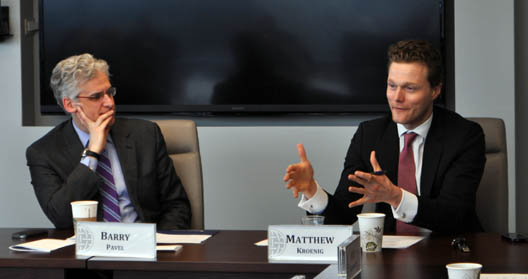 Despite the interim agreement on the Iranian nuclear program in November 2013, Iran’s nuclear program remains perhaps the greatest emerging challenge to US national and regional security interests. US President Barack Obama has made it abundantly clear that a nuclear-armed Iran is unacceptable and that the administration is prepared to do whatever it takes to prevent it. Nevertheless, it is still possible that, despite US efforts, Iran will have a sophisticated nuclear weapons capability within the next fifteen years. Prudent national security planning requires careful consideration of all possible outcomes, especially those the United States most hopes to avoid.
Despite the interim agreement on the Iranian nuclear program in November 2013, Iran’s nuclear program remains perhaps the greatest emerging challenge to US national and regional security interests. US President Barack Obama has made it abundantly clear that a nuclear-armed Iran is unacceptable and that the administration is prepared to do whatever it takes to prevent it. Nevertheless, it is still possible that, despite US efforts, Iran will have a sophisticated nuclear weapons capability within the next fifteen years. Prudent national security planning requires careful consideration of all possible outcomes, especially those the United States most hopes to avoid.
It is in this spirit that the Atlantic Council’s Brent Scowcroft Center on International Security established a working group to examine strategies deterring and containing a nuclear-armed Iran. In its first meeting, the working group assessed the feasibility of both short- and long-term containment and deterrence strategies, ranging from diplomatic negotiations to military actions against Iran. The group also discussed the current US defense posture in the Gulf area, highlighting its strengths as well as some of the challenges it may face in light of the US military rebalance to Asia and the numerous political crises in the region. Further, the participants evaluated military means to strengthen US nuclear deterrence posture and potential implications of a nuclear-armed Iran both on the region’s states as well as in a broader, global context.
The working group’s findings will culminate in a series of written products by Scowcroft Center Nonresident Senior Fellow Matthew Kroenig, due to be rolled out in the Spring.
